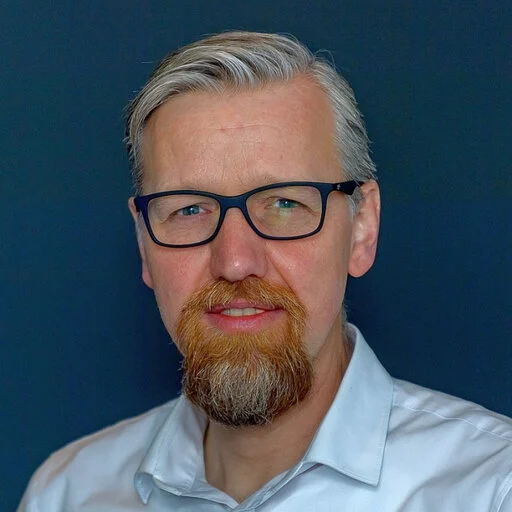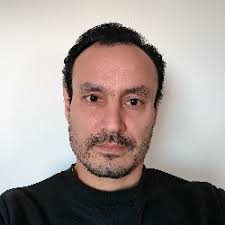Philipp Krause



The fellowship tackles the lack of international, or European, standard or technical specification that focuses explicitly on privacy and data protection capabilities of DLT systems. With this regards, ISO TS 24946 “Requirements and guidance for improving, preserving, and
assessing the privacy capability of DLT systems” has now reached CD stage (July 2025) and will endeavour to move through this process and be completed in 2026. This process requires continued support from experts to ensure delivery, as scheduled. In this sense, the priority of this activity focuses at the European level, CEN/CENELEC JTC 19/WG3 to produce a European standard on PII protection within DLT which is strongly influenced by ‘DIN Spec 4997 - Privacy by Blockchain Design’ and the aforementioned ISO TS 24946. This European specification will seek to harmonise the GDPR and recent EDPB guidance to produce a technical specification intended for the European DLT ecosystem.
This European specification will provide much needed clarity for the DLT ecosystem as regards data protection and privacy capabilities, affordances, and assessment. Further harmonisation between the international specification at ISO and the European standard will support interoperability, and ensure that privacy and data protection capabilities are harmonised globally. The main challenges concerns exacting requirements from regulations such as Article 76(3) of MiCAR, as well as Article 79(1) of the European AMLR will require navigation. Standards
require alignment and compatibility with those legal texts, as well as corresponding regulations regarding personal data, data markets, and trust services (e.g., GDPR, Data Act, eIDAS2). Ensuring there are no gaps between regulatory texts and the proposed European standards will be a primary focus. Also, it must be ensured that there are no substantial gaps between international specifications and European standards will be the second focus. Standards alignment between ISO and CEN/CENELEC is viewed as a key outcome to benefit the global DLT ecosystem, and one that requires strong consensus building, given slightly different international privacy perspectives and preferences.

ISO/IEC 19776-3:2015, Extensible 3D (X3D), defines a system that integrates 3D graphics and multimedia. Conceptually, each X3D file is a 3D time-based space that contains graphic and aural objects that can be dynamically modified through a variety of mechanisms. This part of ISO/IEC 19776 defines a mapping of the abstract objects in X3D to a specific X3D encoding written out in a compact binary form. Each X3D file encoded using the Compressed binary encoding:a. supports all of the purposes of X3D files defined in the X3D abstract specification ISO/IEC 19775; andb. encodes X3D constructs in a compressed binary format, taking advantage of geometric and information-theoretic compression techniques.X3D files encoded using the Compressed binary encoding may be referenced from files using other X3D encodings, and may itself reference other X3D files encoded using other X3D encodings. Sets of X3D files that use multiple encodings can only be processed by browsers that support all of the utilized X3D encodings.
ISO/IEC 29146:2016 defines and establishes a framework for access management (AM) and the secure management of the process to access information and Information and Communications Technologies (ICT) resources, associated with the accountability of a subject within some context.This International Standard provides concepts, terms and definitions applicable to distributed access management techniques in network environments.This International Standard also provides explanations about related architecture, components and management functions.The subjects involved in access management might be uniquely recognized to access information systems, as defined in ISO/IEC 24760.The nature and qualities of physical access control involved in access management systems are outside the scope of this International Standard.
This document describes guidelines for developing education and training systems using VR/AR/MR technology. It defines VR/AR/MR based information modelling that can be used for education and training systems. It provides procedures and methods to be used when developing 3D VR/AR/MR based education and training systems using ISO/IEC JTC 1 standards. It also provides a systematic approach to developing VR/AR/MR based applications for systems integration areas. This work will:- define concepts of VR/AR/MR based education and training.- define an information modelling architecture for VR/AR/MR based education and training systems.- specify standards based functional components for VR/AR/MR based education and training systems.- specify framework components for implementing VR/AR/MR based education and training systems.- include use cases for VR/AR/MR based education and training systems based on the information modelling architecture.Device hardware technology for VR/AR/MR based education and training systems is excluded from this draft.
This document is intended to provide a generic extensible full body image data format for biometric recognition applications requiring exchange of human full body image data. Typical applications are: a) automated body biometric verification and identification of an unknown individual or cadaver (one-to-one as well as one-to-many comparison);b) support for human verification of identity by comparison of individuals against full body images; andc) support for human examination of full body images with sufficient resolution to allow a human examiner to verify identity or identify a living individual or a cadaver.This document ensures that full human body images and image sequence data generated by video surveillance and other similar systems are suitable for identification and verification. The structure of the data format in this document is compatible with ISO/IEC 39794-5. In addition to the data format, this document specifies application-specific profiles including scene constraints, photographic properties and digital image attributes like image spatial sampling rate, image size, etc. These application profiles are contained in a series of annexes. The 3D encoding types "3D point map" and "range image" are not supported by this document.
This document specifies a systematic system for representing humanoids in a network-enabled 3D graphics and multimedia environment. Conceptually, each humanoid is an articulated character that can be embedded in different representation systems and animated using the facilities provided by the representation system. This document specifies the abstract form and structure of humanoids. Further, this document specifies the semantics of humanoid animation as an abstract functional behaviour of time-based, interactive 3D, multimedia articulated characters. This document does not define physical shapes for such characters but does specify how such characters can be structured for animation. This document is intended for a wide variety of presentation systems and applications, providing wide latitude in interpretation and implementation of the functionality.
This document specifies the method of motion capture animation using H-Anim humanoid models. Each humanoid model consists of an articulated character with specified joints and motion capture data. As specified in ISO/IEC 19774-1, each character consists of joints and segments in a hierarchical structure. This document includes the following:(1) Concepts of motion capture as related to humanoid animation,(2) Concepts of motion capture data definition,(3) Definition of motion parameters and motion-capture animation data for transferring or exchanging motion between different humanoid character models,(4) Mapping the structure of motion capture data to the structure of H-Anim objects,(5) HAnim motion capture animation using interpolators,(6) HAnim motion definition using H-Anim Motion objects, and(7) A method for generating and specifying an H-Anim motion capture animation.This document specifies a standard technique for exchanging humanoid animation using motion capture. It does not mandate using any specific run-time system to render the H-Anim characters or animations.
This document specifies extensions to existing scene description formats in order to support MPEG media, in particular immersive media. MPEG media includes but is not limited to media encoded with MPEG codecs, media stored in MPEG containers, MPEG media and application formats as well as media provided through MPEG delivery mechanisms. Extensions include scene description format syntax and semantics and the processing model when using these extensions by a Presentation Engine. It also defines a Media Access Function (MAF) API for communication between the Presentation Engine and the Media Access Function for these extensions. While the extensions defined in this document can be applicable to other scene description formats, they are provided for ISO/IEC 12113.
This document specifies geometry-based point cloud compression.
Coded representation of video-based dynamic mesh coding (V-DMC)